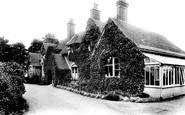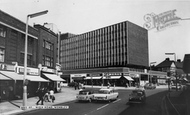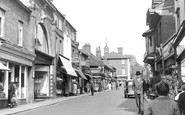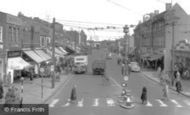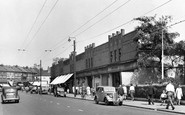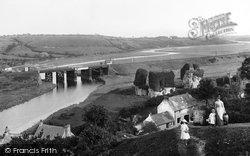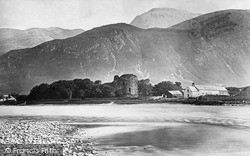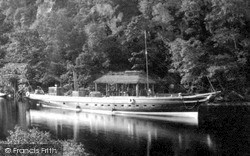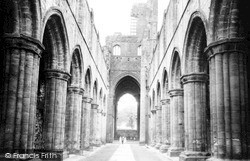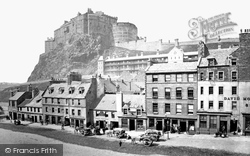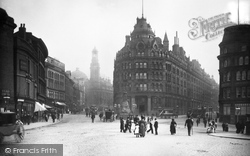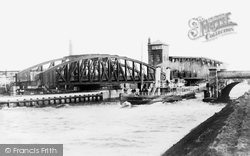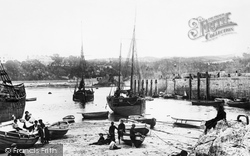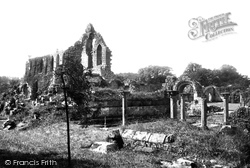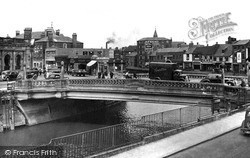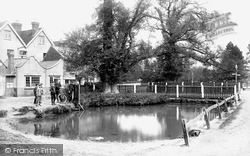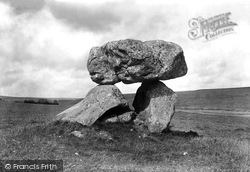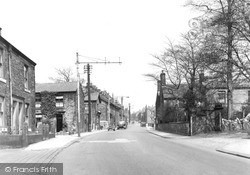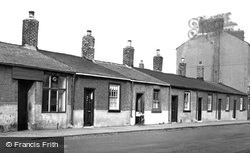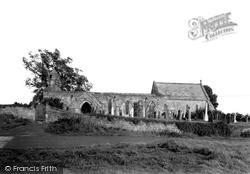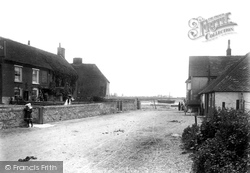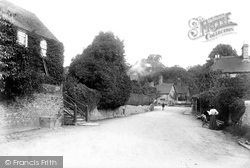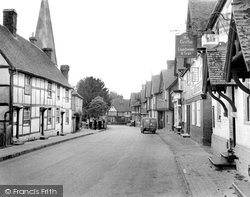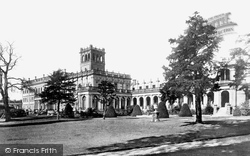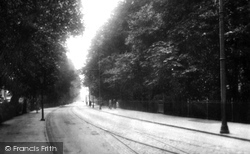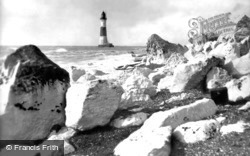Merry Christmas & Happy New Year!
Christmas Deliveries: If you placed an order on or before midday on Friday 19th December for Christmas delivery it was despatched before the Royal Mail or Parcel Force deadline and therefore should be received in time for Christmas. Orders placed after midday on Friday 19th December will be delivered in the New Year.
Please Note: Our offices and factory are now closed until Monday 5th January when we will be pleased to deal with any queries that have arisen during the holiday period.
During the holiday our Gift Cards may still be ordered for any last minute orders and will be sent automatically by email direct to your recipient - see here: Gift Cards
Places
Sorry, no places were found that related to your search.
Photos
Sorry, no photos were found that related to your search.
Maps
7,034 maps found.
Books
163 books found. Showing results 8,641 to 8,664.
Memories
22,913 memories found. Showing results 3,601 to 3,610.
My Dad Plg Farm
BACK IN THE 40s/50s MY DAD HAD A PLOT THE OTHER END OF THE UNDERWERE FACTORY THAT WAS AT THE END OF TUFTON RD HE HAD PIGS THERE IT WAS ALONG SIDE THE RIVER SO GOOD FOR GETTING WATER FOR THEM I USE TO HELP HIM HE HAD AN OLD ...Read more
A memory of Ashford by
Park Lane Junction With Wembley High Road
Oh yes I can recall this photograph really well. I was born in Logan Road, just off Preston Road and my mother and family visited Wembley High Road to frequently. Just before I married in 1971 the site of ...Read more
A memory of Wembley by
Saturday Mornings.
My cousin and I lived at the top of the Oldpark Road, near Ballysillan, in the mid-1950's and every Saturday morning during our tenth and eleventh years, we would catch the bus into town, walk around the City Hall and down to ...Read more
A memory of Belfast by
When West Was East
My grandparents James & Emily Lee lived at 16 Station road from about 1938 to 1946, it was called East Horndon then. Part of that time my mother and I lived with them, most of the war years. My grandfather and my mother ...Read more
A memory of West Horndon by
Born In Southall
I was born at 18, Cranleigh Gardens on the 23/05/1936, my was born in Whites Cottage, Kings Street Southall onthe 26//091905 my grandfather was Southall first fire officer my ...Read more
A memory of Southall by
60's Clubs,Dance Venues And Coffee Bars In And Around Welling
During the 1960's many venues opened in and around Welling to cater for a growing music and dance culture. Teddy-boys and Rockers had frequented the Embassy Ballroom, but when Mod became ...Read more
A memory of Welling by
Moulds My Dad's Old Shop
After the war Dad found work as an assistant in a long established family-run department store called Moulds. Situated in Leatherhead High Street, it was an imposing sort of place with double glass doors set well back from ...Read more
A memory of Leatherhead by
Dunmurry In The 60s & 70s
I lived in dunmurry for 16 years from 1960 until 1976 the things that i remember in the village were the two barber shops the first one was beside jack norths sweet shop on the bridge where as a young boy i remember being left ...Read more
A memory of Dunmurry by
Welling 1960's Mod Venues: New Additions
I recently shared memories of the many clubs, bars and dance halls that sprung up in and around Welling during the mid 1960's Mod era. Since then several other venues have come to mind. I remember the Sunday ...Read more
A memory of Welling
Gants Hill Newbury Park Ilford
Hi there, I'm not sure whether my first memory registered on this page. I'll always have fond memories of Ilford, Gants Hill and Valentines Park. I'll always remember those beautiful swans and Canadian cygnets, the ...Read more
A memory of Ilford by
Your search returned a large number of results. Please try to refine your search further.
Captions
9,654 captions found. Showing results 8,641 to 8,664.
The Augustinian Priory of St Mary and St Thomas the Martyr was founded c1200 by Robert fitz Richard (d1213).
This 13th-century castle, home of the Comyn family, is built in the form of a square, with round towers at the corners.
An excursion steamer waits at the pier. The picturesque loch, which is ringed with hills, features in Sir Walter Scott's poem 'The Lady of the Lake'.
At the back of the great columns were screens closing off the side aisles. A stone screen or pulpitum straddled the nave, surounded by a gallery from which the gospel was sung on festival days.
This was the site of many an execution and the location of the Porteous Riots in 1736. John Porteous was appointed captain of one of the companies employed to keep the peace.
The Frith photographer is standing outside the Cathedral and looking back at the Victoria Buildings and its Hotel.
This view shows the two bridges at Barton upon Irwell both swung to let the paddle steamer 'Ivanhoe' pass.
It has a ruined castle, old stone walls, a bustling harbour, and just offshore, the romantic Caldy Island.
Lying peacefully on the banks of the Ure, the land was given to the monks by Conan, son of Alan the Red, who built Richmond Castle.
To the left, at the junction of Cornhill and the Old Market, can be seen the Midland Bank which was built in 1921.
Further north was the hamlet of Horley Row, with the Chequers Inn at its east end. This is now a busy road junction of the A23 and B2036 Balcombe road.
Devil's Den, near Marlborough in Wiltshire, is an example of how the ravages of the plough is nothing more than intentional vandalism.
Tottington's unusual claim to fame is that it is one of the most northerly places to have suffered a hit from a German V1 flying bomb, or Doodlebug, during the Second World War.
A coal port in the 17th century, and a 'des res' for the well-heeled of Newcastle from the late 19th century onwards, Cullercoats was also a noted fishing community.
The roofs of the nave and south aisle are so low that a first glance at St Michael's often leaves visitors thinking that the building is semi-derelict.
A fishing village and yachting centre located on a creek of Chichester Harbour. A straight and wide road leading to the quay creates an impression of past importance.
This village near Midhurst was built mainly to house employees of the Cowdray Estate, famed for the landscaped park and polo playing.
Simon de Montfort's army lay here the night before the Battle of Lewes in 1264. The area was made notorious by the 'Piltdown Man' fake archaeological discoveries in the 1910s.
At this time Trentham Hall was still used by the Dukes of Sutherland, and local people were allowed access to the gardens on public holidays and during Wakes Week.
In 2003, a new planning row broke out over plans by Richmond College, the local tertiary college (which is actually in Twickenham) to fund expansion plans by selling off part of their site in Crane
Some of the most notable developments of the new millennium have taken place at the Eynesbury end of the town.
Vauxhall aimed their products at a high- class market in class-conscious Britain.
The roads were kept in a good state of repair, enabling high speeds to be maintained by the best of coaches.
warn of any threatened invasion.
Places (0)
Photos (0)
Memories (22913)
Books (163)
Maps (7034)

